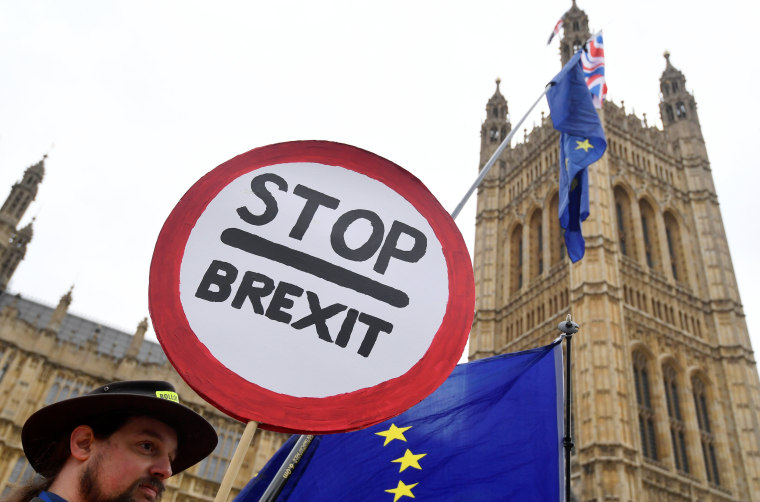LONDON — As the U.K. nears its slated Brexit due date, the country's messy divorce from the European Union has threatened to consume all aspects of public life.
Many friends and relatives remain bitterly divided, lawmakers are mired in political deadlock, and economists warn any independence gained will likely come with a serious financial cost.
On Monday, the E.U.'s top court ruled that the United Kingdom can change its mind and forget the whole thing — if it wants to.
The ruling comes at the start of what promises to be a week of high drama, one day before the most pivotal parliamentary vote in an almost three-year process.
Anti-Brexit campaigners heralded Monday's ruling as a game-changer, boosting their hopes of reversing the divorce altogether.
However, the government attempted to pour cold water on this, saying the decision was irrelevant because there were no plans to deviate from the planned exit from the E.U. on March 29.
The Luxembourg-based European Court of Justice said the U.K. can revoke Article 50, the exit clause the U.K. triggered in March last year that set a two-year countdown for leaving the E.U.
Crucially, the court said the U.K. does not need the consent of the other 27 E.U. member states to revoke Article 50 and cancel Brexit.
It did not say exactly how the decision might be reversed, only that it must come about "following a democratic process in accordance with national constitutional requirements."
Some experts took this to mean a vote by lawmakers, another referendum, or merely a decision by Prime Minister Theresa May or her successor if she's toppled. With lawmakers at an impasse, it's not clear how any of these things would come about.
Article 50 can be reversed, the court said, because the withdrawal agreement negotiated between May and the E.U. has not yet come into force.
British lawmakers are set to vote on her plan Tuesday, but with many openly opposing the deal — including scores from May's own Conservative Party — it appears headed for heavy, and potentially humiliating, defeat in Parliament.
If and when that is voted down, it is far from clear what happens next. Although May's deal does not appear to have a majority, neither, it seems, does anything else, be that another deal or some other way to stop or postpone Brexit.
If not further action is taken, the U.K. will crash out of the E.U. on March 29 under a "no deal" scenario — something that could have all sorts of alarming implications.



